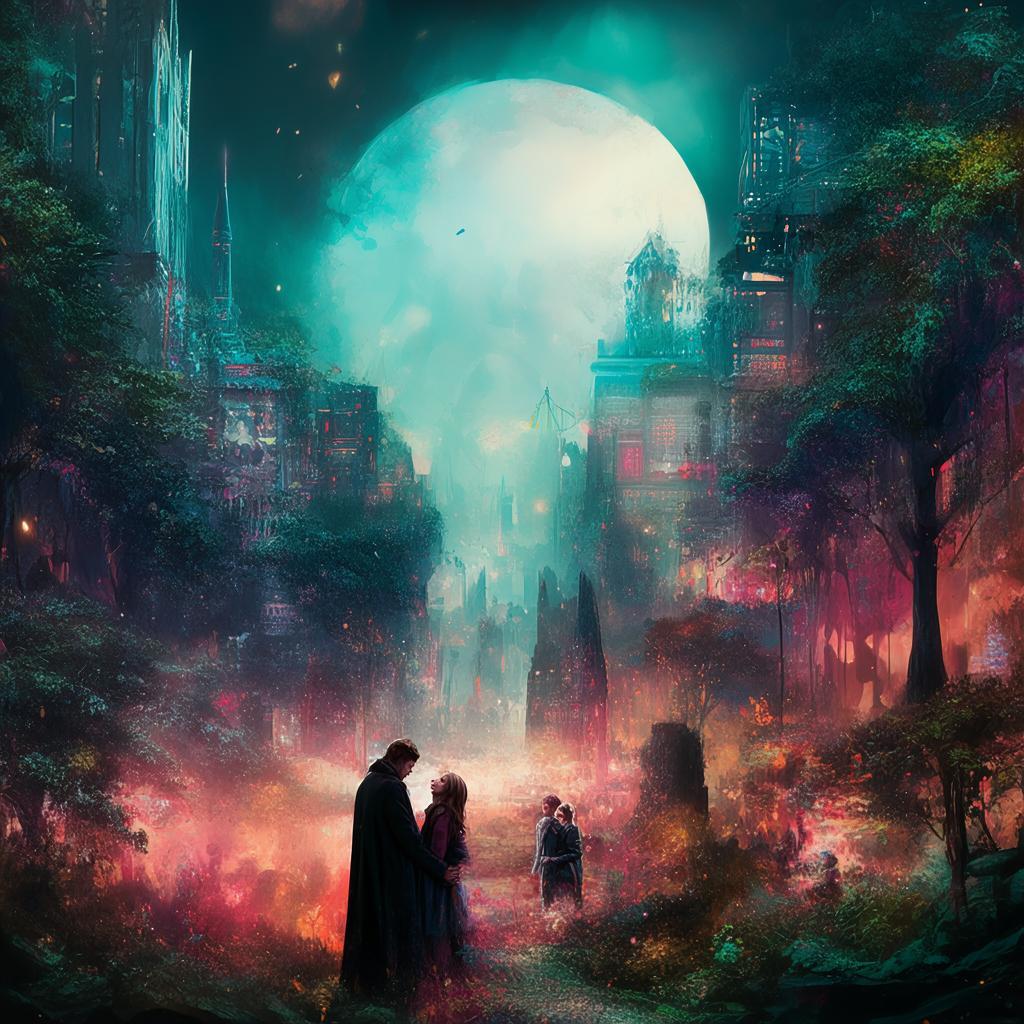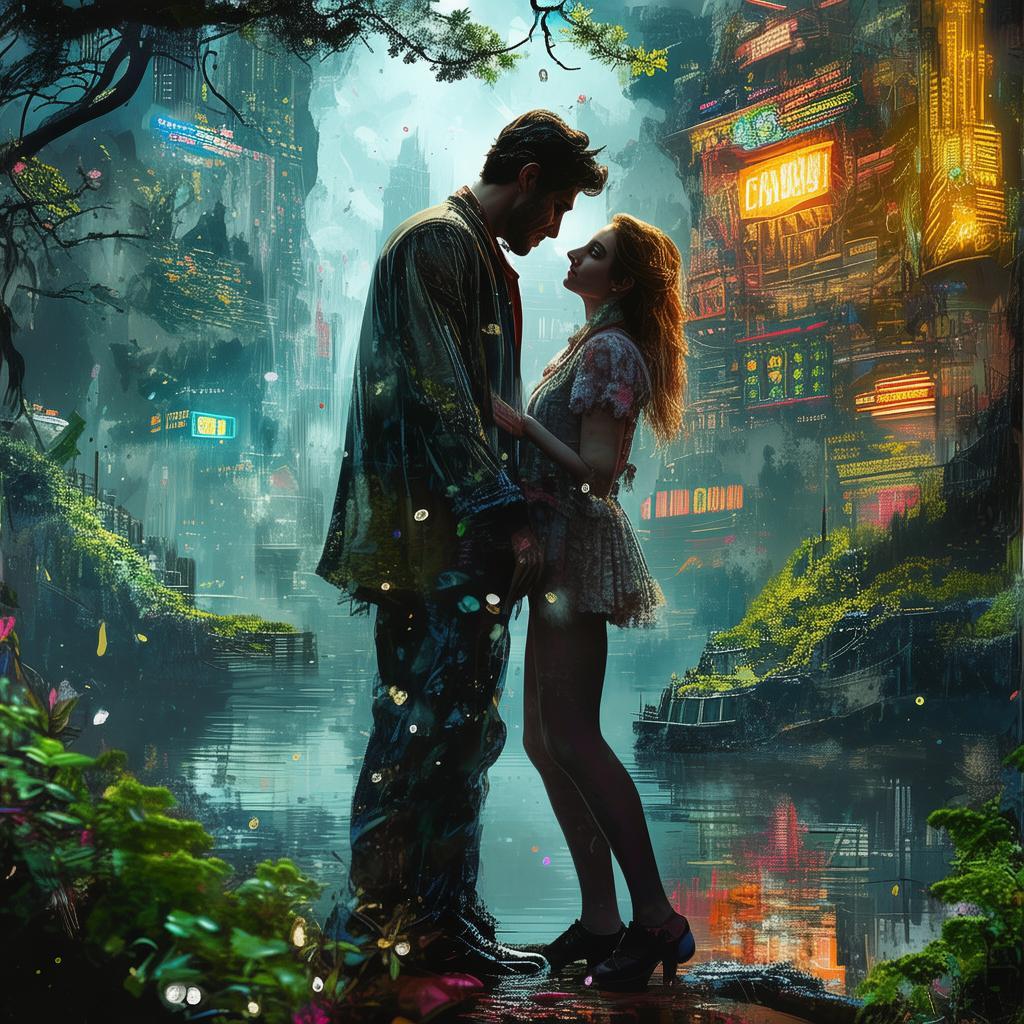The Lyrical Love Affair of a Poet and a Muse in Renaissance Florence
The sun dipped below the horizon, casting a golden glow over the cobblestone streets of Renaissance Florence. The city, known for its art and intellect, was now shrouded in a hush, save for the distant laughter of children playing in the squares. It was in this setting that the tale of Lorenzo, the young and ambitious poet, unfolded.
Lorenzo had a gift, a lyrical gift that could weave tales of love and sorrow with the same ease as he could craft a sonnet. His voice was the essence of the city, a testament to its vibrant spirit. But his heart was a battlefield, divided between two women who were the muses of his songs.
The first was Isabella, a painter of great talent and a soulful beauty. Her eyes held the secrets of the universe, and her laughter was like the sound of a bell chime. She was the embodiment of the Renaissance woman, fierce and intelligent, with a passion for art that matched Lorenzo's for poetry.
The second was Caterina, a singer whose voice was like a melody that could make the stars dance in the night sky. She was the epitome of grace and elegance, her presence alone could transform a room into a palace. Lorenzo was entranced by her, not just by her beauty, but by the depth of her soul, which seemed to resonate with his own.
But the third party in this love triangle was none other than the rival artist, Michelangelo. The architect, sculptor, and painter was no stranger to the art scene, and his rivalry with Lorenzo was not just about the competition for patrons, but for the affections of Isabella and Caterina.
As the summer months waned and the air grew crisp with the approach of autumn, Lorenzo found himself at a crossroads. He had written songs for both Isabella and Caterina, each song a testament to his undying love for them. But the choice was clear: he could not have both.
One evening, as the moon hung low in the sky, Lorenzo found himself alone in the Piazza della Signoria. The square was a sea of people, all lost in their own lives, but to Lorenzo, it was a stage. He opened his mouth to sing, the words of his heart flowing out as naturally as the Arno flowing through the city.
Isabella and Caterina were there, drawn by the sound of Lorenzo's voice. As he sang of his love for Isabella, her eyes sparkled with recognition, and she smiled at him, her smile as warm as the setting sun. Then he sang of his love for Caterina, and her eyes grew wide with wonder, her smile as radiant as the moonlight.
Michelangelo, standing in the shadows, watched the scene unfold. He had heard of Lorenzo's love for Isabella, but he had not realized the extent of his affection for Caterina. As Lorenzo's final note echoed through the square, Michelangelo stepped forward, his presence as imposing as the statues he created.
"Lorenzo," he began, his voice low but filled with purpose, "you have two women who love you, and you have the ability to choose. Will you let your art dictate your heart, or will you let your heart guide your art?"

Lorenzo stood silent, the words hanging in the air. He had always believed that his art was his heart, but now he realized that his heart was his art. The choice was no longer about Isabella or Caterina, but about himself.
He looked at Isabella, then Caterina, and finally at Michelangelo. In that moment, he understood that love was not about having the most beautiful, the most talented, or the most passionate. Love was about understanding oneself and choosing the path that was truest to one's heart.
With a deep breath, Lorenzo turned to Michelangelo. "I choose my art," he declared. "And in choosing my art, I choose you both. For it is through your love and your inspiration that I create."
The city of Florence watched as Lorenzo walked away, his silhouette against the moonlit sky. And though Isabella and Caterina were no longer his lovers, they were always his muses, their spirits forever woven into the fabric of his songs.
As the years passed, Lorenzo's name became synonymous with the beauty of Renaissance Florence. His songs were celebrated, his art was revered, and his heart was at peace. For he had chosen love not in the traditional sense, but in the way that only a true artist could—the love of creation, the love of art, and the love of the soul.
In the end, Lorenzo's love triangle became a love story of the ages, a tale of passion, sacrifice, and the eternal dance between art and heart.
✨ Original Statement ✨
All articles published on this website (including but not limited to text, images, videos, and other content) are original or authorized for reposting and are protected by relevant laws. Without the explicit written permission of this website, no individual or organization may copy, modify, repost, or use the content for commercial purposes.
If you need to quote or cooperate, please contact this site for authorization. We reserve the right to pursue legal responsibility for any unauthorized use.
Hereby declared.









